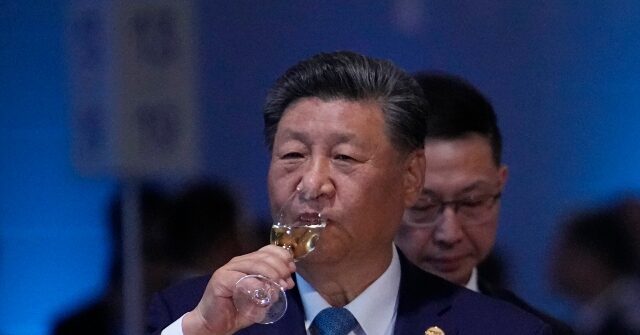Products You May Like
China’s Ministry of Commerce (MOFCOM) has introduced a 20-point “action plan” aimed at stabilizing foreign investment in the country, indicating that the Chinese economy is in dire need of revitalization from foreign capital. This move can be seen as a response to the growing concerns and hesitations among international investors, who have been increasingly wary of China’s dictatorial governance under Xi Jinping and its controversial trade practices.
The action plan is a clear acknowledgment of the challenges facing China’s economy, which has been struggling with reduced foreign investment as investors reconsider their positions amidst the Communist Party’s tightening grip on the economy and increasing unpredictability in policy implementation. Many foreign companies have found the operating environment in China to be increasingly hostile, with factors such as heavy regulations, lack of transparency, and fears of arbitrary enforcement or discrimination against foreign firms.
In the wake of these concerns, China’s latest initiative seeks to create a more investment-friendly climate by outlining specific strategies to attract and retain foreign capital. This includes promises of improved transparency in legal and regulatory frameworks, the establishment of a more predictable business environment, and mechanisms to protect foreign investors’ rights. Additionally, the plan includes assurances of fair competition for both domestic and foreign companies and efforts to streamline bureaucratic processes that have often hindered foreign business operations.
China’s motivation for this action plan is largely driven by the need to bolster its economy, which has faced significant economic challenges such as declining growth rates, high levels of debt, and supply chain disruptions exacerbated by ongoing global tensions. The Chinese government recognizes that foreign investment is crucial for economic growth, innovation, and job creation. Thus, the new measures are intended to rebuild trust among international investors, who have been hesitant to commit to ventures in China due to the prevailing uncertainties.
Along with the action plan, MOFCOM has also engaged in a publicity push to reassure foreign businesses of their welcoming stance. This includes outreach efforts aimed at highlighting success stories of foreign companies thriving in China despite the challenges, thereby encouraging others to follow suit. The government is likely to also enhance protections for intellectual property rights, which is a major concern for many foreign investors wary of potential theft or infringement in a market that has historically been criticized for its weak enforcement.
While the action plan represents a significant step in addressing investor concerns, it remains to be seen whether these proposed strategies will translate into actual improvements and whether they will be implemented effectively. Many investors are cautious, as they’ve witnessed previous promises from the Chinese government that were not followed by substantive changes on the ground. Therefore, the effectiveness of the 20-point plan will heavily depend on the Chinese government’s ability to deliver on its commitments in an environment that has been characterized by distrust and unpredictability.
As China navigates this critical juncture, the global business community will be observing closely to evaluate whether these measures can result in a shift in the investment landscape. Should the plan succeed in rejuvenating foreign investment, it could provide a much-needed boost to the Chinese economy, restoring confidence in its long-term stability and growth prospects. If unsuccessful, it could lead to further erosion of foreign investor confidence, potentially exacerbating the challenges faced by the Chinese economy in the post-pandemic world.
In conclusion, China’s recent action plan signals an urgent attempt to rectify the downward trend in foreign investment, a necessity for economic recovery. While its proposals aim to create a more favorable business climate, the commitment to follow through on these measures will be critical in determining whether they successfully attract global investment back to China.
